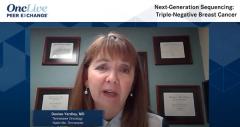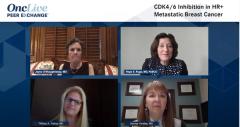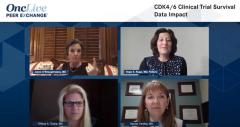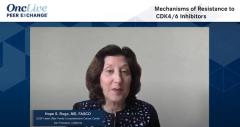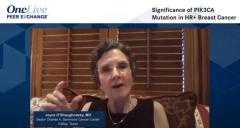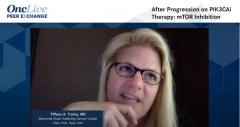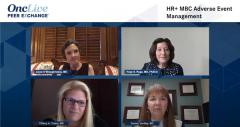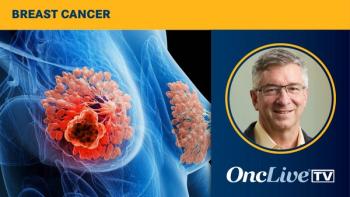
Perspectives on Recent Progress: Program Overview
Episodes in this series

Joyce O’Shaughnessy, MD: Hello, and welcome to this OncLive Peer Exchange® entitled, “Advanced Breast Cancer, Expert Perspectives on Recent Progress.” I'm Joyce O'Shaughnessy from Baylor University Medical Center, Texas Oncology, and US Oncology in Dallas, Texas. Joining me today on this virtual discussion are my colleagues, Dr Hope Rugo from the University of California San Francisco, Dr Tiffany Traina from Memorial Sloan Kettering Cancer Center in New York, and Dr Denise Yardley from Tennessee Oncology in Nashville, Tennessee.
Today we're going to highlight a number of topics pertaining to systemic treatment for advanced triple negative breast cancer and metastatic hormone receptor-positive breast cancers, and we're going to talk about the impact of recent clinical trial data on our clinical decision-making. In this discussion we're going to focus on some of the key data from ASCO 2020 [the American Society of Clinical Oncology annual meeting], the virtual meeting, and we're going to have a robust discussion of all the new data and how to apply it to our practice.
Let's go ahead and get started. We're going to look at triple negative breast cancer first, and I'm going to start us off setting the stage. Where are we today? For patients diagnosed with metastatic triple negative breast cancer, we need to know 2 markers right off the bat. We’ve got to know the PD-L1 status, which we'll talk about in depth with regard to the diagnostics, and we need to know their germline BRCA1 and BRCA2 status.
We have robust data that we’ll go over with regard to PARP inhibitors for patients with germline BRCA, and we'll talk about how to incorporate the PARP inhibitors. And of course, we now have FDA-approved treatment for patients with PD-L1–positive, first-line metastatic triple negative breast cancer from the IMpassion130 data. We're going to talk quite a bit about the diagnostics of PD-L1, but suffice it to say that there is a survival advantage of 7 months in favor of adding the checkpoint inhibitor, the anti–PD-L1 agent atezolizumab, to nab-paclitaxel in the first-line setting for metastatic triple negative breast cancer.
I dare say that because survival is the most important end point to our patients and to us, that we're going to prioritize the use of a atezolizumab and nab-paclitaxel in the first-line metastatic setting. We will talk about new data that came out at ASCO, the KEYNOTE-355 trial with pembrolizumab and a slate of chemotherapeutic options, but we do have FDA approved the atezolizumab and the nab-paclitaxel. For patients who are not germline BRCA and whose breast cancer is PD-L1 negative, we do have data from the TNT trial published by Andrew Tutt, MB, ChB, PhD, a very nice first-line randomized trial of carboplatin, AUC [area under the curve] of 6, versus docetaxel, 100 mg per meter squared, basically showing equivalence of those 2 strategies.
The only subset that really benefited from one agent more than another were the patients with germline BRCA, who definitely had a higher response rate and median PFS [progression-free survival] with the carboplatin. But otherwise whether we start with a platinum-based regimen or we start with docetaxel, it seems to be equivalent in terms of overall outcomes. We really do have that choice right now for our PD-L1–negative, germline wild-type patients.
Transcript Edited for Clarity



